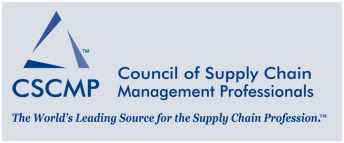By Adrian Gonzalez - ARC Advisory Group
Is logistics a cost center or a competitive differentiator? Is it a core competency or a function that should be outsourced?
I would argue that most CEOs, at least historically, have viewed logistics as a cost center (trucks, warehouses, overhead, etc.), a business function that falls short of their "core competency" definition. This perspective has led to the ongoing growth (except for this year) of the logistics outsourcing (3PL) industry.
Of course, just because a business function is not considered a core competency, or is outsourced to a third party, doesn't necessarily mean that it's not valued by the CEO. The true test of value is whether a CEO is willing to continue investing in logistics, either internally-in people, technology, assets, etc.-or by developing more strategic relationships with 3PL partners. If neither type of investment is taking place, then you have a problem.
Is this the case at your company? If so, how do you explain the value of logistics to your CEO?
The common advice is to communicate the value of logistics in terms the CEO, as well as the CFO, can understand. In other words, you have to speak their language, which entails linking logistics with financial metrics. Unfortunately, many logistics executives are financial illiterates. If you can't read and understand an income statement or balance sheet, for example, then your ability to effectively communicate the value of logistics to the CEO/CFO is severely limited.
Placing logistics in a financial context will get your foot in the door, but is it enough?
I don't think so. CEOs suffer from a similar deficiency: most of them are supply chain and logistics illiterates. They are often the weakest link in a company's supply chain, as Rueben E. Slone, Executive VP of Supply Chain at Office Max, and his co-authors wrote in "Are You the Weakest Link in Your Company's Supply Chain?" (Harvard Business Review, September 2007). "In this article," the authors wrote, "we advise CEOs not to become unwitting weak links in their companies' own supply chain strategies. The costs of neglecting important matters of supply chain management are damaging to any type of business for which SCM is potentially a competitive differentiator (most notably, manufacturing, retail, and distribution). CEOs should get involved."
Sir William Osler, MD, the father of modern medicine, once said, "Medicine is learned by the bedside and not in the class room. Let not your conception of manifestations of disease come from work heard in the lecture room or read from the book: see and then research, compare and control. But see first."
In order for CEOs to truly appreciate the value of logistics, they too must see first...by spending the day picking goods at the warehouse; driving shotgun on a delivery truck; finding capacity for uncovered loads; tracking and tracing shipments; building pallets near the loading dock; calling vendors overseas, and taking calls from customers, in both cases the same question: Where's our order?
If getting your CEO immersed in your logistics operations is too much to ask, then have him attend a supply chain and logistics conference...or two or three, especially the ones organized by the software and technology vendors that power your logistics processes. While not as good as see first, spending a few days with supply chain and logistics professionals, from many different companies and industries, presenting case studies and discussing industry trends, is still a valuable type of seeing and hearing.
How do you explain the value of logistics to a CEO? You don't. The value has to be experienced firsthand, like getting soaked in the rain. Everything else is just words and numbers.
 CSCMP Mission: To lead the evolving supply chain management profession by developing, advancing, and disseminating supply chain knowledge and research.
CSCMP Mission: To lead the evolving supply chain management profession by developing, advancing, and disseminating supply chain knowledge and research.